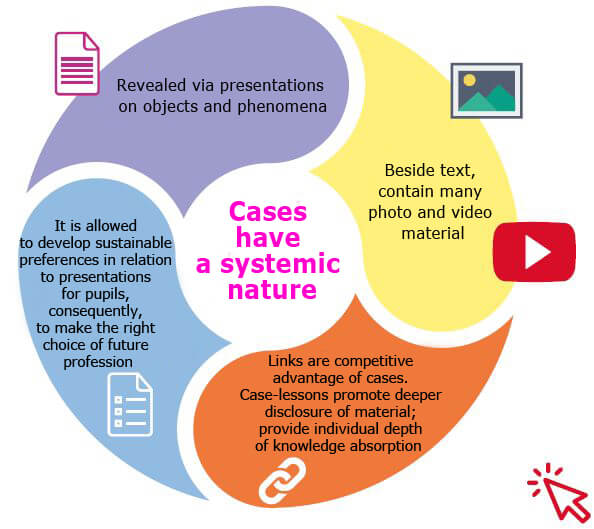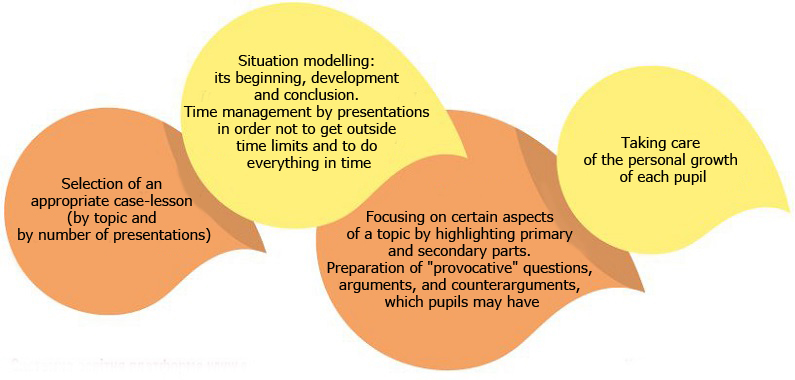Case-lesson is a comprehensive educational technology developed according to a special algorithm, which displays 2 in 1 advanced formula:

How does it work?
Case-lesson is a unique study material structured in a special format. It consists of 6-10 presentations, which systematically reflect topics of a school curriculum and related information outside it. Case-lessons are designed to enhance knowledge and develop competencies. The information in each section is not just abstracts, and answers to questions:
- How does it work?
- What are the associated problems?
- How can you overcome them?
- What can happen in the result?
- What are fundamental and new knowledge in this area?
- Mini-stories.





